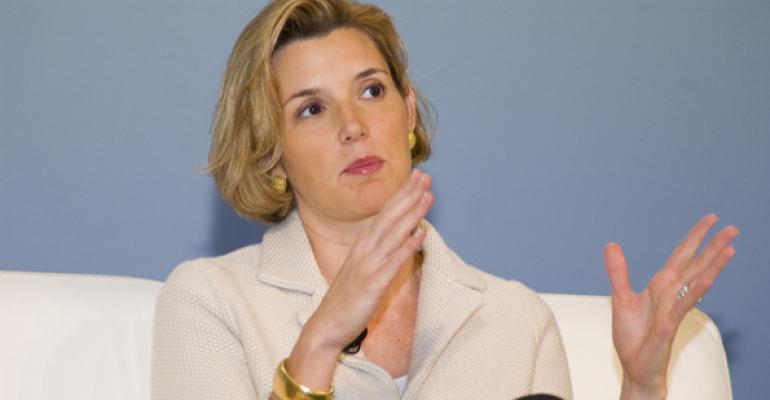Sallie Krawcheck, aka Mrs. Clean, is rumored to be on the short list to succeed Mary Schapiro as the chairman of the SEC. In recent week, Sallie has been on various social media (LinkedIn and Twitter), weighing in on the various vexing conflict-of-interest issues facing Wall Street. In fact, according to one account, Sallie has posted some 700 or so Tweets, many about regulatory matters.
BusinessInsider posted (and very quickly, I might add) after Schapiro’s announcement that she would be stepping down that Sallie was on the short list to succeed as her as SEC Chairman, I was caught off guard. What?! Then I thought about it. I remembered her getting canned for having the temerity to urge Citi management (of which she was a part) to return to its clients the auction rate securities that had been frozen in a busted auction during the financial crisis. The ARS mess hurt individual financial advisors in a big way, considering how they were positioned for well-heeled clients.) She was also seen as a financial advisor’s advocate wherever she worked, urging management to help financial advisors help their clients. At least that’s what I heard from numerous sources at Citi and especially at Merrill Lynch, where she headed up the retail wealth management unit. Apparently, Sallie wasn't keen on BofA's cross-selling initiative.
Sallie posted this very interesting and useful commentary about “What I Learned When I Got Fired (the First Time)” on LinkedIn on 20 November. (At least I think she posted this, unless someone hacked her. But it sounds like her. I have known her for years in my role here at REP. magazine and WealthManagement.com). Here is the first paragraph of her post:
There are some things worth being fired over. Sometimes your personal values don’t mesh with the company’s (regardless of what the company’s “Values Statement” says). Back in 2008, at Smith Barney, we had sold supposedly low-risk investments to our clients. But instead of their value declining modestly during the downturn, they went to very close to $0. I never found any evidence of wrong-doing; but I did recognize that we had nonetheless breached our clients’ trust, regardless of what the small print said. I proposed that we share part of the losses with them – both because it was the “right thing” to do, but also very much because sharing the impact of the hit would, I thought, be the “right business thing” to do. There were others who disagreed; after much back-and-forth (and many “no’s”), my team’s argument won the day, but it was clear I wasn’t long for the company. . . .
I urge readers to hit her LinkedIn article.

